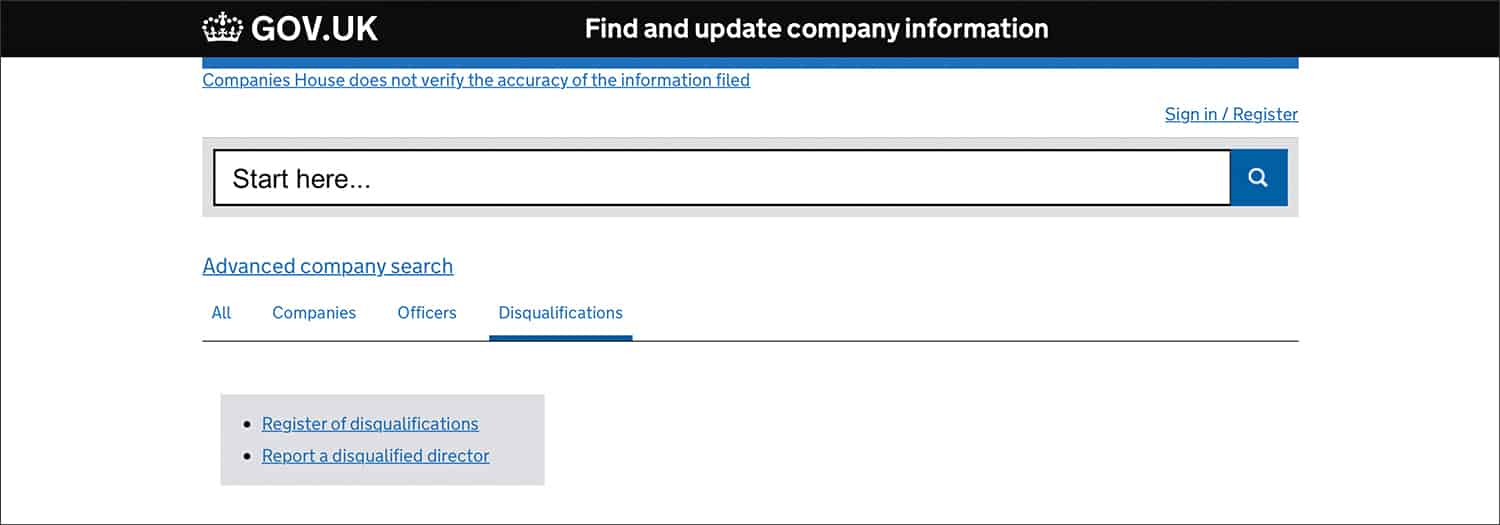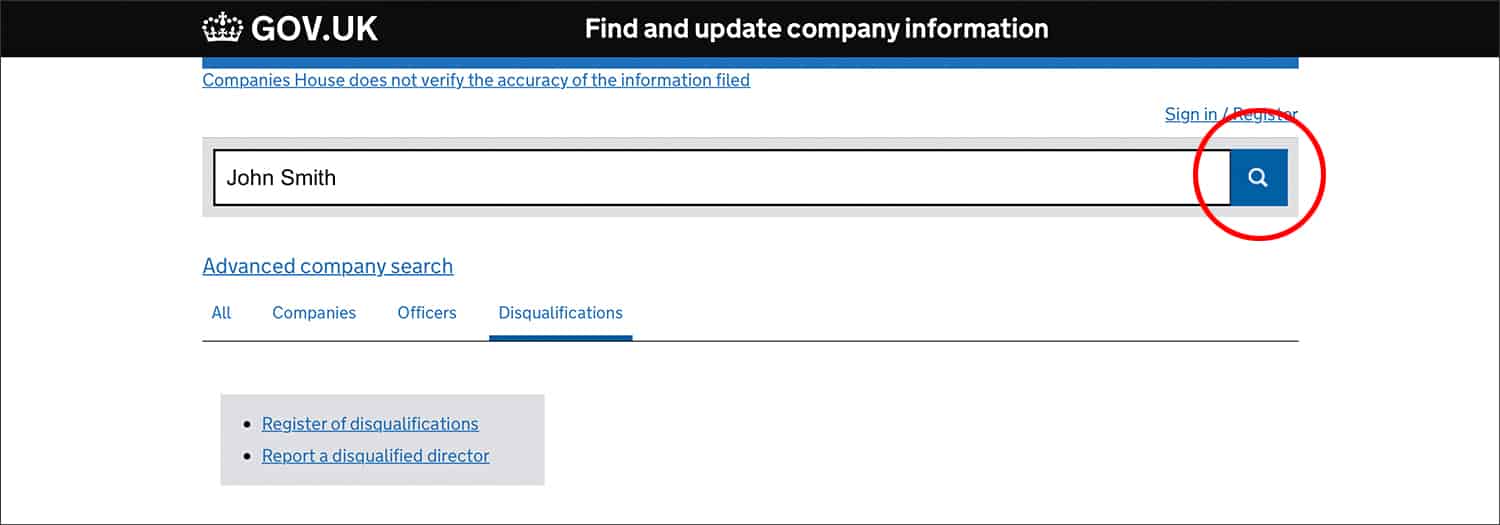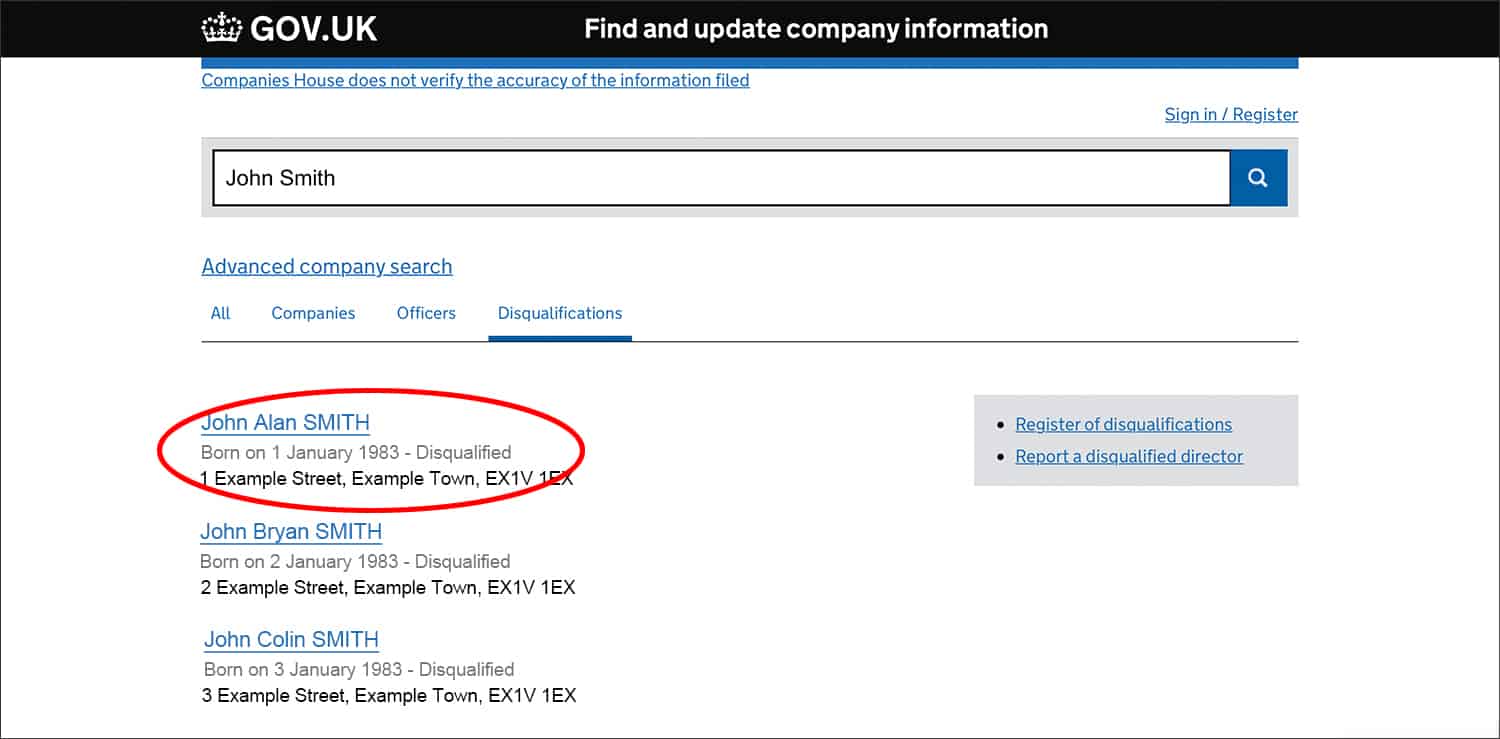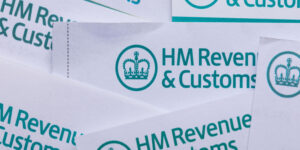The information that Companies House has on record is vast. You may know that they maintain a register made up of every active and dissolved company, and the people associated with these companies, but are you aware that there’s also a ‘Companies House disqualified directors register’?
In this post, we’re going to look at how to find disqualified directors and why the disqualified register is a key tool when it comes to doing your due diligence. Let’s get started.
Why look for Companies House disqualified directors?
Companies House accepts company documentation ‘in good faith’. This means, whilst rules are in place about who can and can’t be a company director, if a company attempts to appoint a disqualified person as a company director, Companies House will attempt to identify them, but oftentimes will not do so, leading to the person being appointed to the company on the Companies House register.
So – if your limited company is looking to take on a new director – it pays to search the Companies House disqualified directors register to ensure any potential candidates have not been banned from the role.
It is also a good idea to utilise the register before entering into a new business relationship, whether it’s with a supplier, partner, or customer, just to make sure that you’re not getting involved with a potentially problematic business.
Checking the disqualified register makes for a particularly effective due diligence tool when teamed with research using the company credit score and the regular Companies House register (which allows you to view a company’s current status and see if they’re up to date with their filing responsibilities).
The information you can find using the disqualified register
If you complete a check via the disqualified register and a director does appear, that should be reason enough to question if you should be working with them. Nonetheless, here’s the extra information that you can find on the disqualified director:
- Full name
- Date of birth
- Nationality
- Address
- Start and end date of the ban
- Case reference ID
- Name of the company they were acting for when disqualified
- The brief reason that they were disqualified
How to find a disqualified director
Accessing and using the Companies House disqualified directors register is free, and as you’ll see, simple.
To complete a check:
1. Go to the main Companies House disqualified directors register page.

2. Enter the name of the person and click on the magnifying glass icon.

3. You will be presented with a list of names that match (or roughly match) your search. If the person does not appear, it’s good news, they have not been disqualified. If they do appear, you now have reason to be concerned. Click on their name to get the information mentioned above.

How to report a disqualified director
Have you located a director who has been disqualified but is still acting as a director? You can report this to The Insolvency Service.
Getting more information about why the director was disqualified
You can use the normal Companies House register to retrieve background information on the company that the director was acting for when disqualified (you can also look into any other companies that they were associated with).
If the director in question was disqualified within the last 3 months from a company based in England, Scotland, or Wales, you can use The Insolvency Service’s online tool to get a more detailed insight into why they were disqualified.
If the disqualification took place more than 3 months ago, you can email [email protected] and request this information.
If the director was acting for a company based in Northern Ireland when disqualified, you should email [email protected] for a detailed summary.
Why would someone be disqualified from being a company director?
An individual is generally banned from acting as a company director if they are an undischarged bankrupt, or don’t meet the responsibilities of the role. These responsibilities, as defined by GOV.UK, are:
- Follow the company’s rules, shown in its articles of association
- Keep company records and report changes
- File accounts and a Company Tax Return
- Tell other shareholders if they might personally benefit from a transaction the company makes
- Pay Corporation Tax
A director can also be banned if someone reports them to The Insolvency Service for ‘unfit’ conduct. Unfit conduct, as defined by GOV.UK includes:
- Allowing a company to continue trading when it can’t pay its debts
- Not keeping proper company accounting records
- Not sending accounts and returns to Companies House
- Not paying tax owed by the company
- Using company money or assets for personal benefit
There you have it
The Companies House disqualified directors register is a handy (and free) tool that you should use to protect your company, whether you’re taking on a new director or going into business with another company.
Using it takes a matter of seconds, so there really is no excuse not to utilise it when researching the people and businesses that you’re looking to work with.
We hope you have found this post helpful. Please leave a comment if you have any questions.
Please note that the information provided in this article is for general informational purposes only and does not constitute legal, tax, or professional advice. While our aim is that the content is accurate and up to date, it should not be relied upon as a substitute for tailored advice from qualified professionals. We strongly recommend that you seek independent legal and tax advice specific to your circumstances before acting on any information contained in this article. We accept no responsibility or liability for any loss or damage that may result from your reliance on the information provided in this article. Use of the information contained in this article is entirely at your own risk.










Join The Discussion